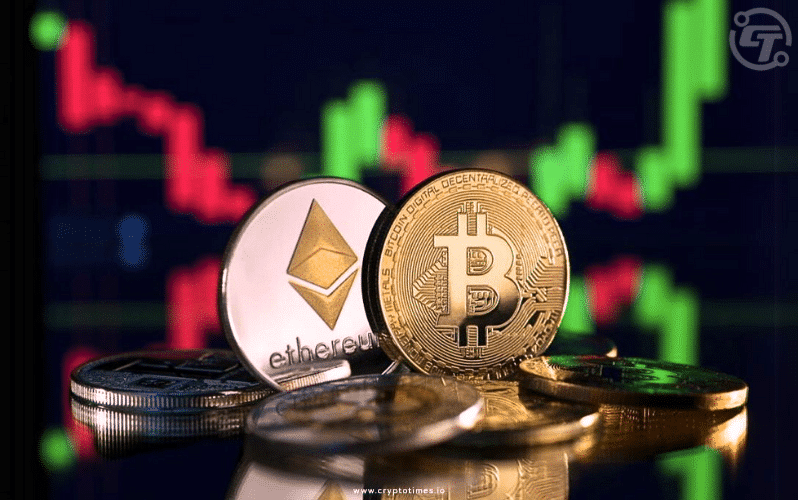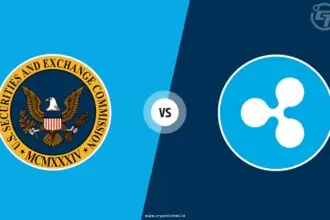In the realm of finance and investment, institutional crypto trading partners are crucial players. They are tasked with managing and trading a significant amount of securities for diverse financial entities like pension funds, mutual fund companies, insurance companies, and banks. This responsibility grants them substantial influence in the crypto market.
This article will explore the role and impact of institutional trading partners. We will cover their core functions, trading strategies, impact on financial markets, the regulatory landscape they navigate, and the evolving challenges and opportunities they face.
Concept Of Institutional Trading Partners
Essentially, institutional trading serves as the backbone of financial markets. These experts specialize in navigating the complexities of securities to achieve the financial goals of the institutions they work for.
In contrast to retail traders, who are typically individuals, institutional traders leverage advanced computing to implement low-latency trade algorithms. Their strategies, backed by cutting-edge research, are governed by a distinct set of regulations. The substantial volume of trades they conduct gives them considerable market influence, allowing them to significantly impact the prices of the assets they trade.
The rise of crypto assets has expanded the purview of institutional traders and infrastructure providers, such as crypto exchanges with institutional offerings providing order books, or those providing institutional trading infrastructure such as Elwood or Talos for instance.
Institutional crypto traders are entrusted with managing and trading crypto assets on behalf of their clients – enabled by these institutional trading partners (e.g. One Trading, Talos, Elwood).
Role of Institutional Trading Partners
At the heart of their role, institutional trading partners provide the liquidity necessary for the efficient functioning of financial markets. With a myriad of financial instruments being exchanged every day, these entities ensure the seamless operation of the trading process. Furthermore, they facilitate the effective flow of capital in the market.
Institutional crypto trading partners, while facilitating transactions of crypto assets, serve a parallel function. They ensure that digital markets remain efficient and continue to attract institutional investors seeking exposure to this burgeoning asset class. In essence, these institutional crypto trading partners are accelerating the adoption of crypto assets globally.
1. Institutional Trading Strategies
Institutional traders use a variety of strategies in the financial markets, tailoring their approach to meet specific goals and adapt to market conditions. Some common strategies include algorithmic trading, high-frequency trading (HFT), dark pool trading, and block trading.
In the world of crypto assets, institutional traders often opt for algorithmic trading. This strategy involves using mathematical algorithms to create trading signals and execute trades. Another approach is high-frequency trading, where buying and selling happen very quickly. These methods have gained popularity because they outpace human capabilities, making them more efficient.
High-frequency trading is essentially a faster version of algorithmic trading. It involves managing small-sized trade orders sent to the market at extremely high speeds, measured in milliseconds or even microseconds. To put it in perspective, a millisecond is a thousandth of a second, and a microsecond is a thousandth of a millisecond.
Also Read: 5 Proven Crypto Trading Strategies for Greater Profit
2. Influence on the Market
Institutional traders have a big impact on the overall financial market. If a big investor sells a lot of a certain asset, its price can sharply go down. On the flip side, if they buy a lot, the price can shoot up. This power also holds true in the world of crypto, where a large trade can cause big changes in digital asset prices.
3. Regulatory Environment
In regular financial markets and the crypto world, institutions that trade and the places they trade (like exchanges) follow a lot of rules. In the United States, for instance, the Securities and Exchange Commission (SEC) keeps an eye on them. The goal is to make sure everything is fair and clear in the markets, and to stop shady things like insider trading and messing with the market.
In the crypto world, rules are still changing. Different countries have different ways of handling digital assets. Institutional crypto traders have to figure out and follow a mix of rules and requirements to make sure they’re doing things the right way.
Challenges and Opportunities
1. Technological Advancements:
- Challenge: The fast-paced changes in technology, like algorithmic and high-frequency trading, make the financial markets more complex and competitive.
- Opportunity: Staying updated on technological advancements is crucial for institutional traders to thrive in this evolving landscape.
2. Crypto Asset Dynamics:
- Challenge: Digital assets, known for their price swings, pose challenges in managing risks and executing strategies for institutional crypto trading partners.
- Opportunity: Despite the challenges, the volatile nature of crypto assets opens up new possibilities for trading and portfolio management, offering the potential for significant returns.
3. Global Economic Impact:
- Pivotal Role: Institutional trading partners, whether in traditional or crypto markets, play a vital role in the global economy.
- Challenge & Opportunity: Managing large volumes of securities, providing liquidity, and ensuring efficient capital flow are crucial tasks that come with challenges but also present opportunities for financial professionals.
4. Growing Influence in Digital Assets:
- Challenge: Navigating the evolving regulatory landscape in the digital asset space can be complex for institutional crypto trading partners.
- Opportunity: Despite the challenges, their influence is increasing, contributing to the maturation and stability of the broader crypto assets market.
Also Read: The Best Crypto Tools for Growing Your Portfolio in 2023
Conclusion:
As financial markets continue to transform, the influence and significance of institutional trading partners are expected to grow. This evolution extends into the digital asset realm, where these professionals are becoming increasingly integral to the maturation and stability of the broader crypto assets market.







